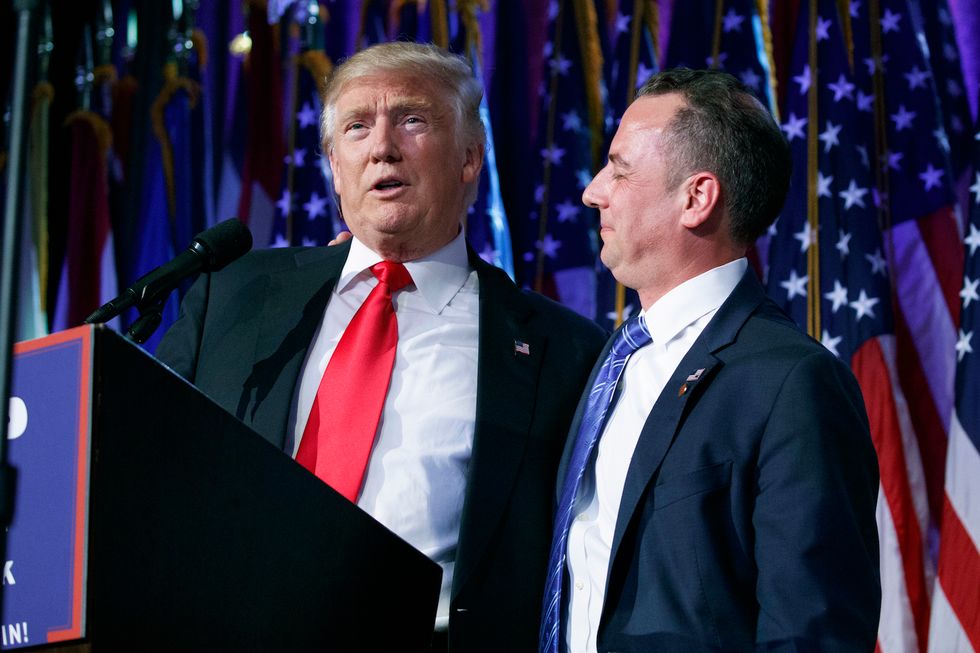
President-elect Donald Trump stands with Reince Priebus, who was recently named Trump's chief of staff, during an election victory rally, Wednesday in New York. (AP Photo/ Evan Vucci)

President-elect Donald Trump won't take office for more than two months, but he's already had a major effect on United States policy. President Barack Obama announced that he has taken the Trans-Pacific Partnership (TPP) trade deal off the table after the election of Trump, sensing that Republicans in Congress will refuse to act on it given Trump's strong anti-TPP rhetoric on the campaign trail.
The TPP is a sprawling and complex trade deal that has received generally positive reviews from conservative think tanks such as the Heritage Foundation and the libertarian Cato Institute. It has likewise garnered the support of several liberal think tanks, including the Brookings Institute. When it was initially raised in Congress, it enjoyed broad bipartisan approval.
However, the measure quickly became a target for Midwestern blue-collar voters who were aggressively courted by both parties. President-elect Donald Trump was the lone Republican who harshly criticized the agreement from the beginning, but the measure also played a vital role in the Democratic primary as well. Vermont Sen. Bernie Sanders successfully used former Secretary of State Hillary Clinton's support for the measure as a wedge issue against her, which was considered to be largely responsible for Sanders's stunning victory in the Michigan Democratic presidential primary. Eventually, Clinton was forced to disavow her support for the TPP, which opened a window for Trump to criticize her as a flip-flopper on the issue.
Throughout the campaign, as both major party candidates grew increasingly critical of the TPP, Obama continued to strike a defiant tone, promising to bring the issue to Congress after the election and vowing that the U.S. would not withdraw from the global economy.
However, the election of Trump, who made his criticism of trade agreements a central part of his platform, signaled clearly to congressional Republicans and Democrats alike that support for the issue was a major political loser for candidates of both parties, regardless of its potential economic benefits. Obama's announcement on Sunday signals the new reality of a more protectionist America under a President Trump — especially where Asian nations are concerned.
It is unclear what, if anything, Trump will be able to do to trade agreements such as NAFTA and CAFTA that have already been ratified by Congress, but he appears to have already killed one major trade deal before he even took office.
Leon Wolf
Former Managing Editor, News